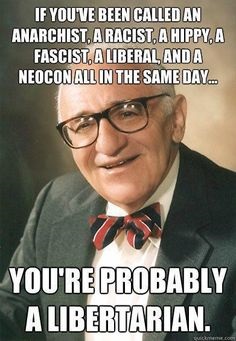Home of great beers, amazing Christmas markets, Crystal Palace striker Christian Benteke and sadly the EU, Belgium declared independence in 1830. This followed the Belgian Revolution when the largely Catholic regions of the United Kingdom of the Netherlands split from what we now call Holland and Luxembourg. The Treaty of London (1839) guaranteed the independence and neutrality of Belgium. The so called “scrap of paper” led to the UK entering the first world war when Belgium was invaded. Indeed Belgian resistance largely thwarted the Schlieffen Plan which allowed time for the Allied Powers to mobilise.
Thankfully today the fight for freedom and liberty in Belgium is much more peaceful. We speak with Baudoin Collard of the Parti Libertarien (the Libertarian Party of Belgium).
Baudoin thank-you for the interview and for undertaking this in English.
Could you in a couple of sentences tell our readers about the party?
The ‘Parti Libertarien’ (Libertarian Party in English) is a Belgian party founded in 2012. It is mainly active in the French-speaking part of the country (the Brussels and Walloon regions) as well as in the German-speaking part.
The Parti Libertarien participated in several elections in Belgium, albeit with limited success: in 2014 (federal and regional elections), in 2018 (provincial and communal elections) and 2019 (Federal and regional elections).
In 2015, the PLib (Parti Libertarien) was one of the 12 founding members of the IALP (International Alliance of Libertarian Parties – http://ialp.com/)
Our party is also active on internet:
- Website: https://www.parti-libertarien.be/
- Facebook: https://www.facebook.com/libertariens.be/
- Twitter: https://twitter.com/Libertariens_be
“For example, we campaigned in the media for the legalization of cannabis, for the abolition of the national biometric ID card, the suppression of government agencies such as the AFSCA (responsible for bureaucratic food-chain regulations)”
What are the main issues in Belgium you campaign on, what gets Libertarians excited?
We stand for a strictly limited government and support laissez-faire capitalism. Our main engagements are the following:
- restore Belgian military neutrality;
- focus the State on its sovereign functions;
- remove all taxes other than VAT;
- restore absolute respect for individual, civil and economic freedoms;
- abolish all “legal privileges”;
- promote private initiatives in the fight against poverty ;
- guarantee the free movement of goods and people;
- end drug prohibition;
- free up and put currencies into competition and
- cancel Belgian public debt
For example, we campaigned in the media for the legalization of cannabis, for the abolition of the national biometric ID card, the suppression of government agencies such as the AFSCA (responsible for bureaucratic food-chain regulations)… We also made educational presentations on new topics such as cryptocurrencies. We also campaigned against the expensive purchase of new fighter airplanes.

“We do not want a bureaucratic construction imposed from above, no federalism, no new deal, no Eurobonds. European construction must be done from below, through natural exchange and the mutual interests between individuals”
What’s your party’s view of the EU and the Euro?
We strive for a Europe that Europe protects its individuals against their own governments: a EU that guarantees human rights, that puts an end to protectionism, that defends the freedom of circulation. Alas, for some time now, the EU has turned into an imperial project of technocratic domination.
We do not want a bureaucratic construction imposed from above, no federalism, no new deal, no Eurobonds. European construction must be done from below, through natural exchange and the mutual interests between individuals.
Regarding the monetary policy, we are highly sceptical of the Euro project and we propose instead to free the financial system and to privatize the emission of money with competing entities.
Belgium recently went a year without a government, was it liberating?
For most of the people most of the time, it didn’t really have much impact. First, we still had a (relatively limited) federal government responsible for the day-to-day management. Secondly, Belgium has a complex organisation with multiple layers of governments: federal, regions, communities, provinces and communes.

Every so often we hear about a possible partition of Belgium, what’s your party’s view on this?
Our party has no specific stance regarding a possible partition of Belgium, but we support the right of the people to self-determination. So if the Flander (the Dutch-speaking part of Belgium) wishes to secede, it should be their right and it should be respected. In this case, there will be a need to reach a balanced agreement regarding complex questions such as the status of the Brussels Region and the federal debt…
“the positions of MEPs like Syed Kamall and Daniel Hannan have often been a reminder of the value of individual freedoms. They will be greatly missed”
The UK has now left the EU and is due to finally fully transition out at the end of the year, how does your party and your nation more generally view Brexit?
In the same way, the Plib respects the democratic referendum taken by the people of Great-Britain and we now look forward to a mutually beneficial agreement between EU and Great-Britain. We published an article on that subject (in French): https://www.parti-libertarien.be/le-brexit-un-nouveau-depart/.
That being said, our members are generally supportive towards Brexit and the EU is more and more seen as a bureaucratic and centralized entity, increasingly diverging from its original purpose. We at the Plib, are very attached to the principle of subsidiarity.
On the other hand, we fear that by losing British parliamentary representation in the European Parliament, the liberal opposition to the liberticide measures initiated by the European Commission tends to be reduced. Indeed, the positions of MEPs like Syed Kamall and Daniel Hannan have often been a reminder of the value of individual freedoms. They will be greatly missed.
Different countries campaign in elections in different ways, what methods does your party focus on, and do you have any interesting stories from the campaign trail?
In previous elections, we partnered with other associations focused on liberty in order to share the effort and gain more visibility. It is also a nice way to get to know different people and share ideas and experience, even when the others don’t necessarily have the same point of view on some subjects.
What’s your party’s plan for fighting elections and getting the message of liberty out to the electorate?
In the Walloon and Brussels region where we are established, the economic education of the citizens is rather limited and as consequence, a lot people are easily fooled by the promises of populist parties. To give an idea, at the last election in 2019, extremist parties from the far-right and far-left won 30 seats in the parliament, compared to only 5 in the previous elections.
People in general have a limited understanding of economic mechanism and often have a negative view of capitalism, so one of our main mission is to raise awareness of economic realities and the benefits of liberalism for economic development and people well-being.

If you could introduce, repeal or change 3 laws what would they be?
- Fiscal reform toward a flat tax
- Instauration of referendum
- Cannabis legalization
“To facilitate the economic recovery, the government should drastically reduce the taxes for companies and individuals. At the same time, it should cut its spending and engage in structural reforms to reduce the size of the administration”
Lastly how do you think your government is handling the Covid-19 crisis, and what would you like to be done to help the eventual economic recovery?
Belgium has suffered the worst casualties (in terms of death per million) to the Covid19 and our government has a big responsibility in this crisis.
First the government was completely unprepared for this epidemic, having notably destroyed a large strategic stock of masks just a few months before the crisis.
Then our health ministry has largely underestimated the gravity of the crisis at the beginning, and refused to take measures to accompany people coming back from affected areas in Italy or cancelling big events to limit the spreading of the virus.
Once it was no longer possible to deny the gravity of the crisis, our government decided to centrally manage all the aspects of the crisis with the help of ‘experts’, and was given special powers by the parliament to do so. The government then restricted the sales of masks and disinfectant to the population but was not able to buy masks on international markets, thus worsening the shortages.
The government also strictly limited and controlled the use of screening tests, thus artificially limiting the supply unnecessarily. Notably, the government insisted for weeks that masks were useless for the general population.
To mitigate the spreading of the virus, the government implemented a strict lockdown that will have a huge economic impact but failed to take effective measures to protect the elderly in nursing homes which were the main victims of the crisis. The government even issued strict instructions to keep the elderly affected by the virus from going to hospitals, consequently, around half of the victims of coronavirus died in nursing homes, not in hospitals.
To facilitate the economic recovery, the government should drastically reduce the taxes for companies and individuals. At the same time, it should cut its spending and engage in structural reforms to reduce the size of the administration, improve its efficiency and greatly simplify all the bureaucracy that is a burden for the citizens.



